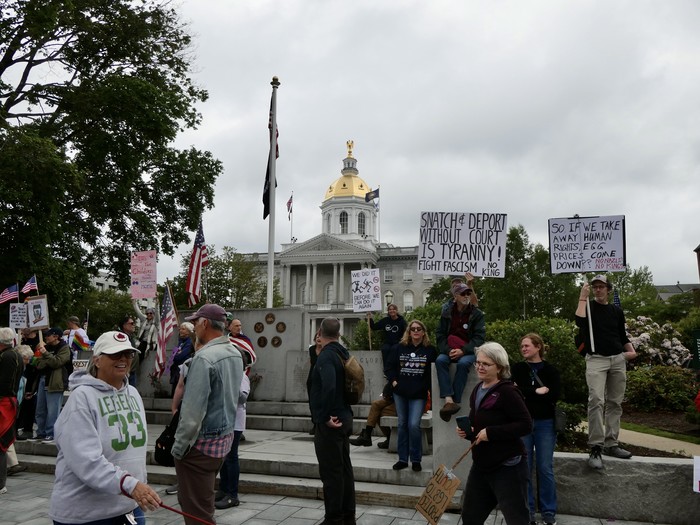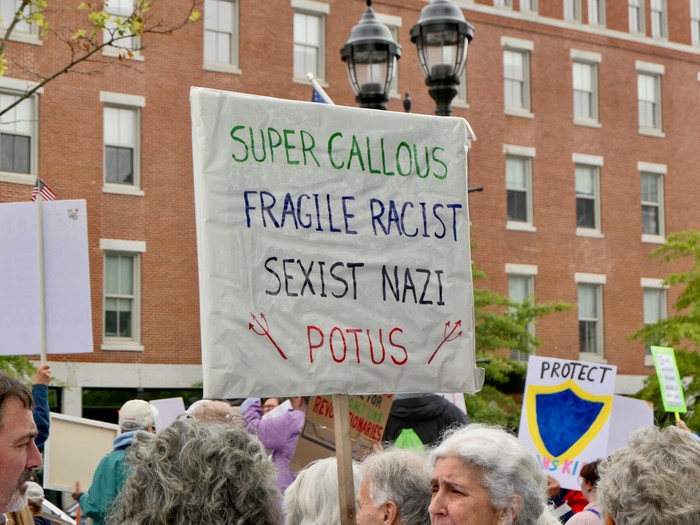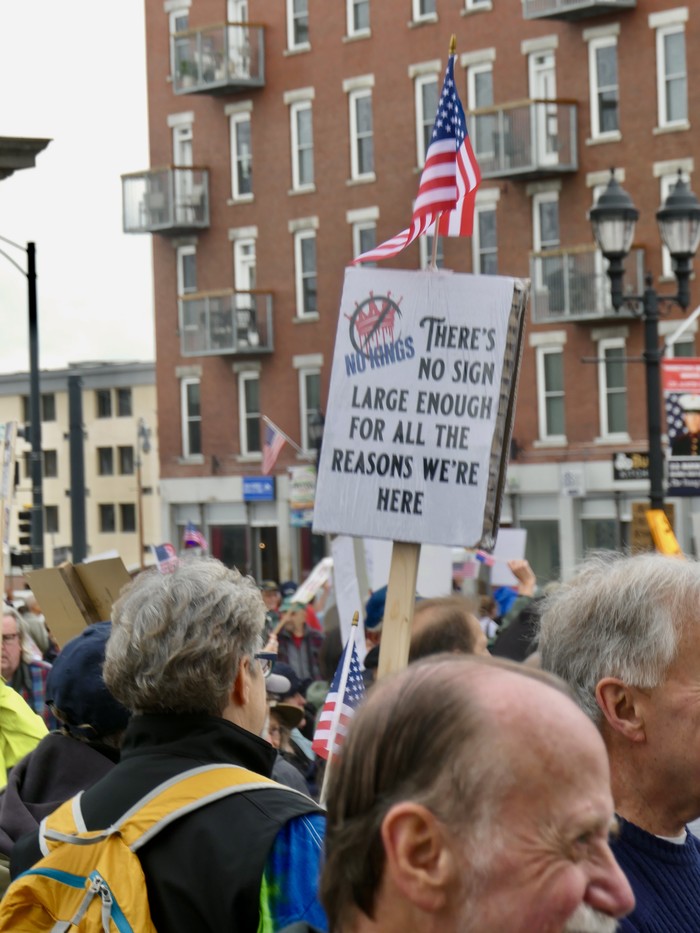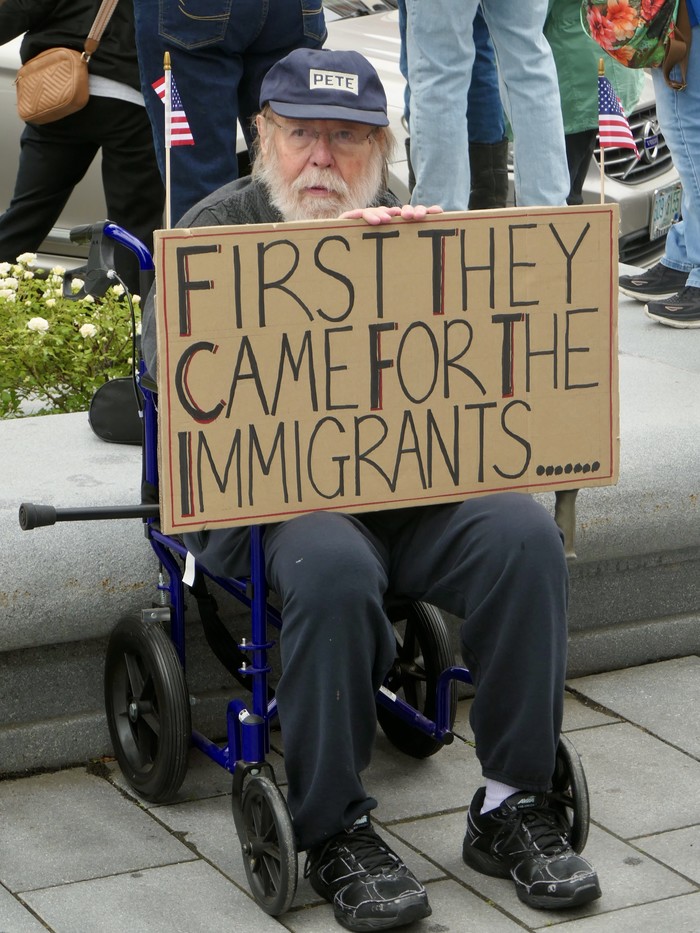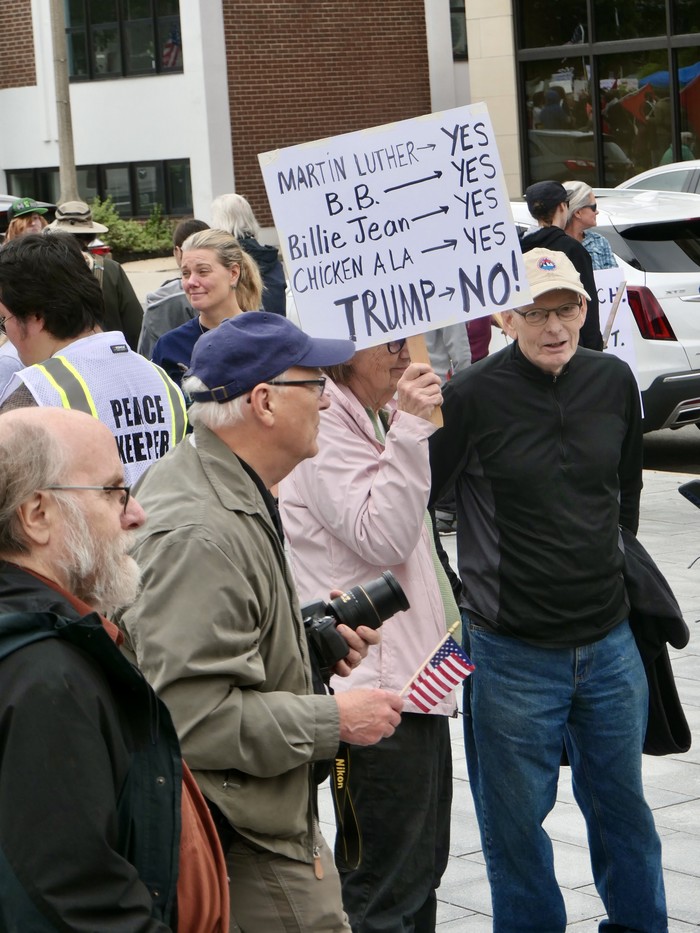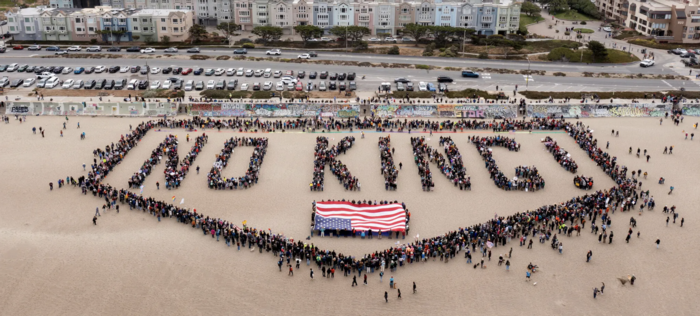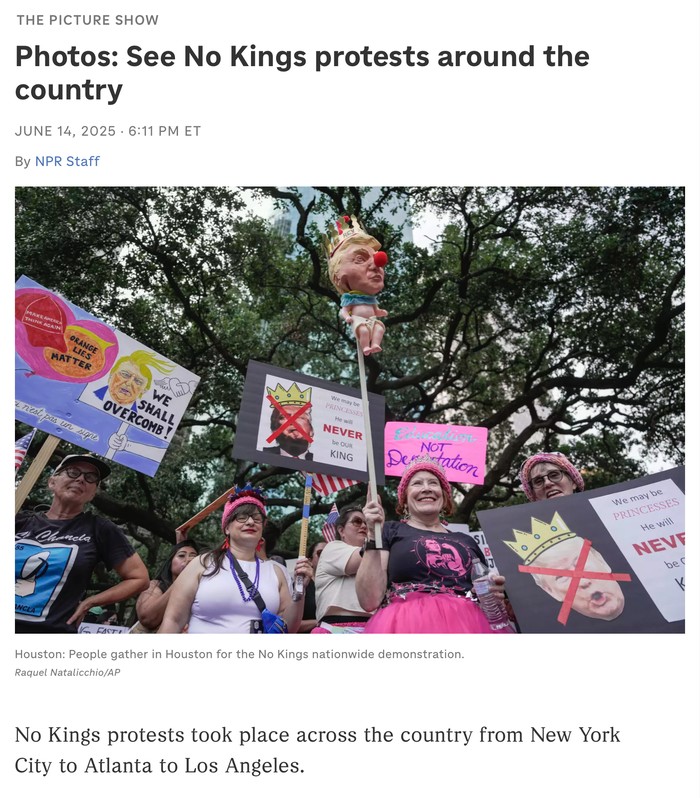|
Jay Shackford
(Editor’s note: Going through my email, I came across this gem of an article from the Washington Post’s Dana Milbank, which was published on May 30 before the big blow up between Elon Musk and our “subprime” President and before Ukraine took out dozens of Russian bombers with drones in a daring and ingenious attack that could change how we fight wars in the years ahead. It was too good to pass up. Happy Summer everyone. School is out and everyone is heading for the beach, except for the kid who is finishing his deck, watching the NHL (hockey) and NBA playoffs before heading for Vegas.)
The TACO President
By Dana Milbank/The Washington Post
May 30, 2025
On Tuesday evening (May 27), Elon Musk’s SpaceX launched its Starship rocket on a test mission after two straight failures. The launch went well enough this time, but while the behemoth was on the edge of space, it lost control, started tumbling and eventually broke apart.
Or, as SpaceX put it: “Starship experienced a rapid unscheduled disassembly.”
The same might be said of Musk himself.
He launched his “DOGE” effort to slash the federal government with explosive force, wiping out whole agencies overnight without regard for the law or the human toll. But his mission, hobbled by its own recklessness and by the courts, produced only a fraction of the cuts Musk had promised — while the billionaire’s tarnished reputation prompted a collapse in Tesla sales. On Wednesday night, Musk, who had been pulling back from his government work, hung up his chainsaw entirely.
In a broader sense, the entire Trump presidency, four months after its incendiary launch, is now experiencing a rapid unscheduled disassembly of sorts.
On “Liberation Day” two months ago, Trump unveiled the core of his economic plan: a massive increase in tariffs on most of the world. But he has since staged several retreats and surrenders in his trade war, and on Wednesday evening, about an hour before Musk called it quits, a three-judge panel on the U.S. Court of International Trade axed most of the remaining tariffs; that and a second ruling invalidating the tariffs are on hold pending appeals. The judges — two of them Republican-appointed, and one a Trump appointee — said Trump had usurped congressional power to levy tariffs.
The centerpiece of Trump’s legislative agenda, a massive tax-and-spending bill, was trashed this week by none other than Musk, who said in an interview with CBS News: “I was disappointed to see the massive spending bill, frankly, which increases the budget deficit, not just decreases it, and undermines the work that the DOGE team is doing.” As written, the bill hikes the federal debt by about $4 trillion, transfers wealth from the poor to the rich and does almost nothing to alter the main drivers of federal deficits.
In foreign affairs, Trump had said he would end the war in Ukraine in 24 hours and would rekindle relations with Russia. Instead, Vladimir Putin has made Trump’s overtures look foolish as he continues to brutalize Ukraine. “Putin is making a mockery of Trump,” Republican Rep. Don Bacon of Nebraska told Fox News this week.
At home, Trump’s mass deportations haven’t happened, and his administration has accumulated an astonishing record of losses in federal courts as judges appointed by presidents from both parties reject his attempt at governing by fiat.
What remains is the wreckage: a loss of faith in U.S. credit, reflected in what the Brits are calling a “moron premium” that the markets are imposing on Trump, which is pushing up bond yields and interest rates; a generation of talent departing the federal government; a loss of goodwill among foreign partners that would take years to rebuild, if it can be rebuilt at all; and the devastation of the scientific research at American universities that has long powered the American economy.
During the Biden years, Trump liked to say that “the world is laughing at us.” Now it really is.
A columnist for Britain’s Financial Times came up with a term to describe Trump’s effect on markets: the “TACO” trade, short for Trump Always Chickens Out. The term, now popular among investors, describes the sell-off that happens when Trump makes a tariff threat, followed by the relief rally that occurs when he backs down.
The fastest TACO happened over the weekend. Trump announced 50 percent tariffs on the European Union on Friday morning. On Sunday evening, Trump suspended the still-not-imposed tariffs. The only thing that happened in between was the two sides agreed to talk — which they were already doing.
Likewise, the Russian government is now mocking Trump. On Sunday evening, after Russia pounded Ukraine with hundreds of missiles and drone strikes, Trump posted that “something has happened” to Putin. “He has gone absolutely CRAZY! He is needlessly killing a lot of people.”
A Kremlin spokesman attributed Trump’s remarks to “emotional overload.”
On Tuesday morning, a petulant Trump posted again: “What Vladimir Putin doesn’t realize is that if it weren’t for me, lots of really bad things would have already happened to Russia, and I mean REALLY BAD. He’s playing with fire!”
The Russian state-owned propaganda outlet RT immediately responded to Trump’s “playing with fire” threat. “Trump’s message leaves little room for misinterpretation,” it wrote. “Until he posts the opposite tomorrow morning.”
The various components of Trump’s rapid, unscheduled disassembly tumbled into the Oval Office Wednesday during an antic Q&A session with reporters.
Was Russia being disrespectful in calling him emotional?
What does his “playing with fire” threat mean?
Could he really have prevented the Ukraine invasion, given that Putin “doesn’t seem willing to do anything that you want him to do”?
What’s his reaction to Musk criticizing his “big, beautiful bill” of tax cuts?
And, from CNBC’s Megan Cassella: “Mr. President, Wall Street analysts have coined a new term called the TACO trade. They’re saying Trump Always Chickens Out on your tariff threats, and that’s why markets are higher this week. What’s your response to that?”
“I kick out?” Trump inquired.
“Chicken out,” Cassella repeated.
“Oh, isn’t that — I chicken out. I’ve never heard that,” Trump said, before launching into a rambling explanation of why he is not a barnyard bird. “Six months ago, this country was stone-cold dead. We had a dead country. We had a country — people didn’t think it was going to survive, and you ask a nasty question like that.”
He admitted his 145 percent tariff against China had been “a ridiculous high number” before returning to scolding Cassella. “Don’t ever say what you said. That’s a nasty question. To me, that’s the nastiest question.” The reporters moved to other topics, but Trump, clearly ruffled, went on squawking about the fowl insult.
“Now, when I make a deal …. They’ll say, ‘oh, he was chicken, he was chicken.’ That’s unbelievable,” Trump protested. “I usually have the opposite problem. They say, you’re too tough.”
It was the classic case of the bully getting punched in the nose. Trump had imposed outrageous tariffs on much of the world, and his treasury secretary warned trading partners, “Do not retaliate.” But they did retaliate. China imposed steep tariffs against the U.S., and the E.U. was preparing to do the same. Trump folded — and now he’s squealing about the unfairness of it all.
In the case of the trade war, it’s a blessing for the U.S. economy that Trump retreated. In the case of Putin, it’s a disaster that Trump won’t back up his threats. In all cases, though, the lesson is clear: The targets of Trump’s bullying rarely win him over with obeisance; he simply demands more. The better course is to do (metaphorically speaking, of course) what Musk described to his biographer, Walter Isaacson: “They might beat the s**t out of me, but if I had punched them hard in the nose, they wouldn’t come after me again.”
Try it, and the president might just serve up another TACO.
The White House put out a statement this week after the monthly consumer-confidence report showed an unexpected increase. “Despite doomsday prophesizing by the ‘experts,’ President Trump’s America First economic agenda of tariffs … continues to pay off,” it claimed. In fact, the jump in confidence, after five months of declines, occurred precisely because Trump abandoned his “America First economic agenda of tariffs.” The Conference Board, which runs the survey, specifically cited the trade truce with China.
Trump beat another retreat from his protectionist agenda when he blessed the takeover of U.S. Steel by Japan’s Nippon Steel. He had said before taking office that he was “totally against” the sale and would “block this deal from happening. Buyer Beware!!!” But last week Trump okayed the sale — with new provisions said to give the U.S. government more influence over operations but with the overall deal intact.
Musk described the DOGE retreat in surprisingly candid terms this week. “The federal bureaucracy situation is much worse than I realized,” he told The Post’s Christian Davenport. “I thought there were problems, but it sure is an uphill battle trying to improve things in D.C., to say the least.” He complained that U.S. DOGE Service had become a “whipping boy” and said it would restrict its work to more modest projects, such as improving computer systems. That was Tuesday. On Wednesday, he walked away from the whole thing.
On Russia, Trump is showing himself to be a paper tiger, constantly making threats (“I’m not happy!” “I don’t like it at all!”) but then retreating to inaction when Putin continues the bombing. Asked how he’s going to make good on his threats, Trump keeps saying “we’ll see” and “I’m not going to tell you” — and proposing that he needs another two weeks to divine Putin’s intentions.
Trump also seems to be retreating from his attempt to punish law firms that represent his opponents. After he bullied Paul Weiss and other firms into providing pro bono work for Trump-backed causes, four firms that fought Trump’s bullying have prevailed in court. In the latest ruling, Judge Richard Leon, a George W. Bush appointee, rejected with almost Trumpian punctuation the administration’s attempt to cripple WilmerHale. The administration attempted “a staggering punishment for the firm’s protected speech!” Failing to invalidate the entire executive order “would be unfaithful to the judgment and vision of the Founding Fathers!”
After the repeated losses, Trump’s interest in the whole effort has flagged. Partners at firms that expected to be punished by Trump tell me they are pleasantly surprised that nothing has happened.
Trump’s focus now is on punishing Harvard University for refusing to allow the administration to dictate the school’s academic and admissions policies. He has cut off more than $3 billion in grants to the school and tried to block it from enrolling international students. The House version of Trump’s tax bill would impose an 11-fold increase in endowment taxes paid by Harvard and other top schools. Combined, these punitive measures would increase tuition, send the next generation of technology innovators overseas and cripple scientific research in fields such as quantum computing. (It’s all so self-defeating that Melania Trump this week felt it necessary to bat down an internet conspiracy theory holding that Harvard must have enraged the president by rejecting Barron Trump’s application.)
Harvard is punching back, as it should. It hired top Republican lawyers, it sued the Trump administration, and it has already won a temporary block of the ban on international students. The judge extended that ban on Thursday. And Trump, following the usual pattern, is becoming less belligerent in his tone. He has gone from proclaiming that “Harvard is a JOKE” that “teaches Hate and Stupidity” and pushes a “terrorist inspired/supporting ‘Sickness’” to saying: “Harvard has to understand the last thing I want to do is hurt them.”
Certainly, many of Trump’s abuses continue undiminished. He just pardoned a bunch of people who had been convicted of bribery, fraud, tax evasion and other crimes — at least in part to reward political supporters. Trump’s pardon attorney, Ed Martin, explained the rationale on X: “No MAGA left behind.” Trump now says he’s looking into pardoning the people who conspired to kidnap Michigan Gov. Gretchen Whitmer, a Democrat.
His Justice Department is investigating the Democratic fundraising platform ActBlue for possibly illegal foreign contributions, while ignoring that the same type of contributions went to the Republican platform, WinRed. He has appointed partisans to inspector general positions at agencies. His Federal Trade Commission is probing a left-leaning watchdog, Media Matters, in support of a lawsuit filed by Musk.
Health and Human Services Secretary Robert F. Kennedy Jr. last week issued a health report citing studies that don’t exist, the news organization Notus discovered. Now Kennedy wants to bar government scientists from publishing in real medical journals such as the Lancet “because they’re all corrupt.”
Speaking of corruption, Evan Osnos reports in the New Yorker that those seeking an audience with Trump have paid $1 million apiece to his MAGA Inc. super PAC for a seat at a Mar-a-Lago group dinner and $5 million for “one-on-one conversations with the President.” Trump continues to ignore a law requiring him to sell or close TikTok, explaining this week that it’s because the Chinese-owned social media company “was very good to me” in the campaign.
He took new steps to politicize the U.S. military, delivering the commencement speech at West Point while wearing a MAGA cap. He used the address to boast about his “greatest election victory,” to disparage “drag shows” and “critical race theory,” to complain that “I went through more investigations than Alphonse Capone” — and to offer some thoughts on “trophy wives.”
He continues to diminish his office in ways large and small. On Memorial Day, he shared a post on Truth Social saying Democrats “stole the 2020 election and hijacked the country using a decrepit corpse as a front man.” In his remarks at Arlington National Cemetery, he celebrated his own good fortune: “We have the World Cup and we have the Olympics. … I have everything. Amazing the way things work out. God did that.”
And he continues to defy court orders. Three times judges have ordered the administration to bring back migrants it mistakenly deported without due process — and three times the administration has refused to comply. In an all-caps posting on Memorial Day, Trump complained about “THESE USA HATING JUDGES WHO SUFFER FROM AN IDEOLOGY THAT IS SICK, AND VERY DANGEROUS FOR OUR COUNTRY.”
The good news is more and more Americans are summoning the courage to fight back. This week, NPR and a trio of member stations sued the Trump administration over his executive order attempting to cut off its funds. As important as the lawsuit itself was the lead lawyer representing NPR: conservative legal luminary Miguel Estrada, who is the latest of several GOP super-lawyers — Paul Clement, Bill Burck, Robert Hur — to stand up to the Trump administration’s abuses.
“The order aims to punish NPR for the content of news and other programming the president dislikes and chill the free exercise of First Amendment rights by NPR and individual public radio stations across the country,” Estrada and his team wrote in their lawsuit. “The order is textbook retaliation and viewpoint-based discrimination in violation of the First Amendment.”
It was another blow, squarely landed, on the bully’s nose.
|






















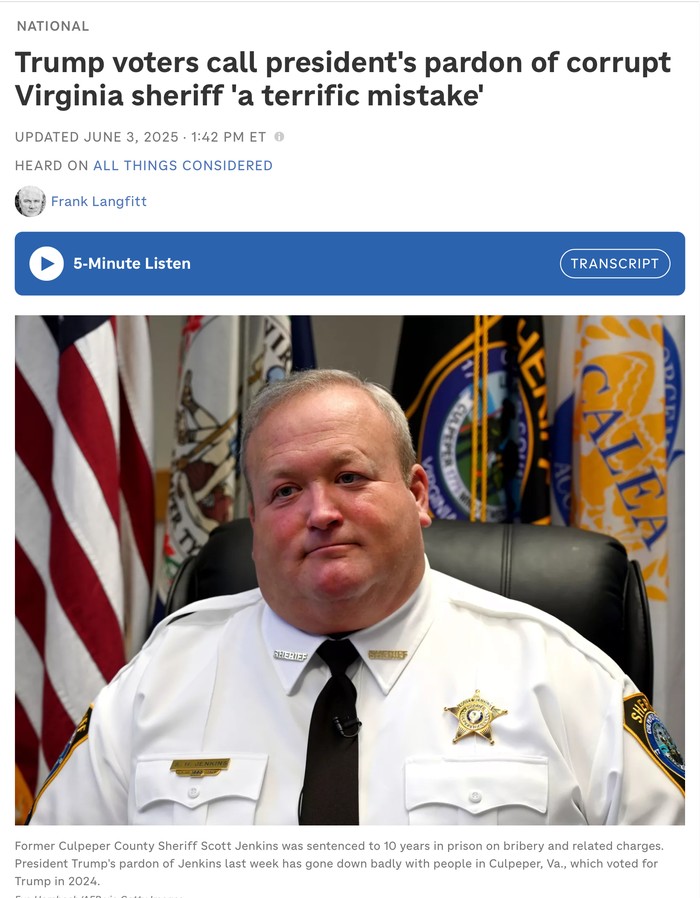

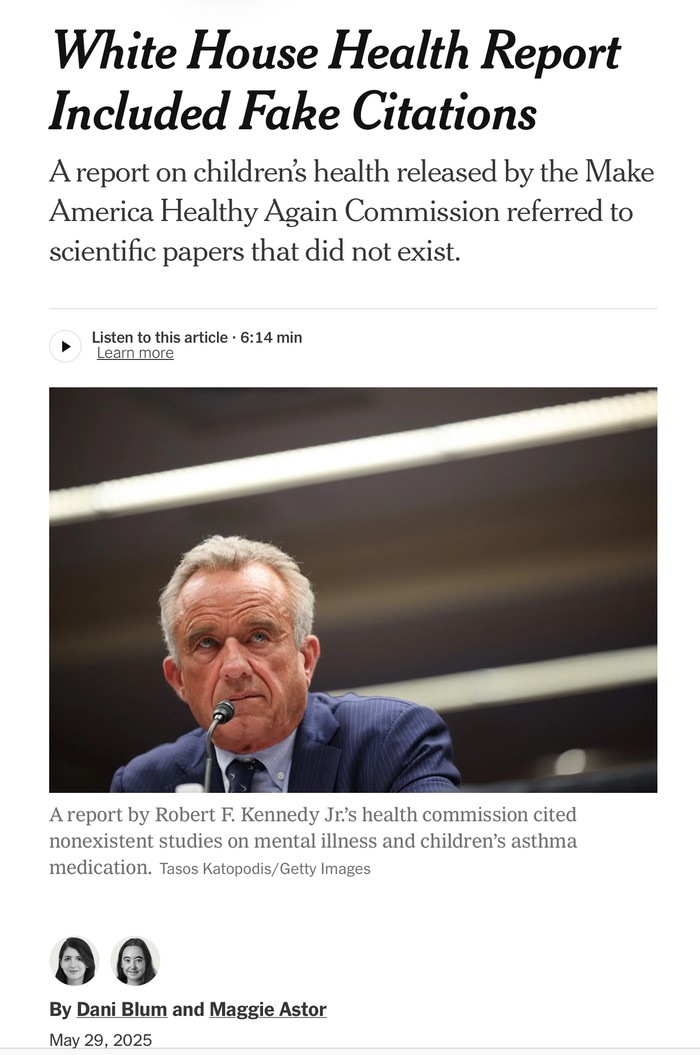


 Ever see anything odder than this?
Ever see anything odder than this?












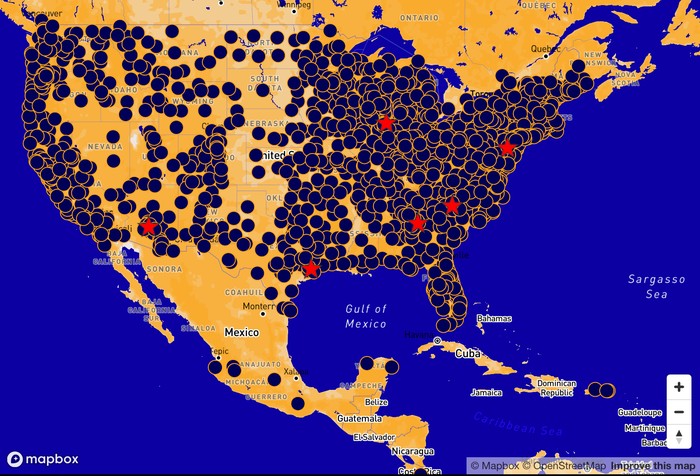




.jpeg)
.jpeg)
.jpeg)
(1).jpeg)
